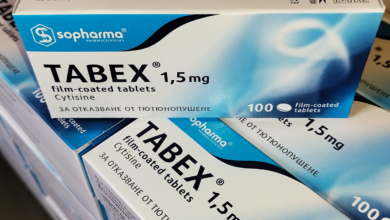Navigating The Path To Recovery: A Comprehensive Guide To Opioid Treatment

Opioid Treatment Las Vegas has become a critical necessity as the opioid epidemic has devastated communities across the United States, leaving countless individuals and families grappling with the profound impacts of addiction.
However, there is hope – through comprehensive treatment and a multifaceted approach, individuals struggling with opioid use disorder can embark on the path to sustainable recovery.
Understanding Opioid Use Disorder
Opioid use disorder is a chronic, relapsing condition characterized by a compulsive desire to use opioid-based substances, such as prescription painkillers or heroin, despite the harmful consequences.
This disorder arises from a complex interplay of genetic, environmental, and neurological factors, making it a deeply challenging condition to overcome.
The first step in the recovery process is recognizing and acknowledging the problem. Opioid use disorder can manifest in a range of symptoms, including physical dependence, cravings, and withdrawal symptoms when use is discontinued.
Seeking professional medical and psychological support is crucial in addressing the multifaceted nature of this condition.
Medication-Assisted Treatment: A Holistic Approach
One of the most effective strategies for treating opioid use disorder is medication-assisted treatment (MAT).
This approach combines the use of FDA-approved medications, such as methadone, buprenorphine, or naltrexone, with comprehensive behavioral therapy and counseling.
Medications like methadone and buprenorphine work by reducing cravings and withdrawal symptoms, while also blocking the euphoric effects of opioid use.
It allows individuals to focus on the psychological and social aspects of their recovery without the debilitating physical symptoms that can derail the process.
Behavioral therapy, on the other hand, addresses the underlying emotional, psychological, and behavioral factors that contribute to opioid use.
These interventions may include cognitive-behavioral therapy, contingency management, and peer support groups, all of which work in tandem to help individuals develop healthier coping mechanisms and build a strong support network.

The Importance Of Detoxification
For many individuals struggling with opioid use disorder, the journey to recovery begins with medically supervised detoxification.
This process involves the safe and gradual discontinuation of opioid use under the care of medical professionals, who can monitor and manage withdrawal symptoms to minimize discomfort and the risk of complications.
Detoxification alone, however, is not a complete treatment solution. It is the first crucial step in a comprehensive recovery plan, which must be followed by ongoing maintenance therapy and support to prevent relapse and promote long-term sobriety.
Navigating The Healthcare System
Accessing quality and affordable healthcare is a significant challenge for many individuals seeking opioid treatment. Navigating the complex healthcare system can be daunting, but resources are available to help guide individuals through the process.
Community health centers, federally qualified health centers, and state-funded addiction treatment programs often offer sliding-scale fees and various payment options to ensure everyone gets the care they need.
Additionally, many government and non-profit organizations assist with insurance coverage, transportation, and other logistical barriers to treatment.
Building A Support Network
Recovery is not a solitary journey, it is a collaborative effort that requires a strong support network. Family members, friends, and peers who have also experienced the challenges of opioid addiction Las Vegas can provide invaluable emotional support, encouragement, and accountability throughout the recovery process.
Support groups, such as Narcotics Anonymous (NA) or SMART Recovery, offer a safe and inclusive environment where individuals can share their experiences, learn coping strategies, and build meaningful connections with others who understand the unique challenges of addiction.
These support networks provide a sense of community and help individuals develop the resilience and self-care practices necessary to maintain long-term sobriety.
Embracing A Holistic Lifestyle
Sustainable recovery from opioid use disorder goes beyond just abstaining from substance use. It requires a comprehensive lifestyle change that addresses the physical, mental, emotional, and social aspects of an individual’s well-being.
It may include incorporating regular exercise, mindfulness practices, nutritious eating habits, and other self-care activities that promote overall health and wellness.
By addressing the whole person, individuals can build a strong foundation for long-term recovery and reduce the risk of relapse.
Conclusion
Navigating the path to recovery from opioid use disorder is a challenging but rewarding journey. By understanding the nature of the condition, embracing a holistic approach to treatment, and building a strong support network, individuals can reclaim their lives and embark on a new, fulfilling chapter.
Remember, recovery is not a linear process; it is a continuous effort that requires patience, perseverance, and a steadfast commitment to one’s well-being.
With the right resources and support, individuals struggling with opioid use disorder can find their way to a brighter, healthier future.
If you’re struggling with opioid addiction, Partida Corona Medical Center is here to help. Our compassionate team offers personalized, evidence-based treatment to guide you toward lasting recovery.
Don’t face this challenge alone. Contact us today to learn about our comprehensive opioid treatment services and take the first step toward a healthier future.







